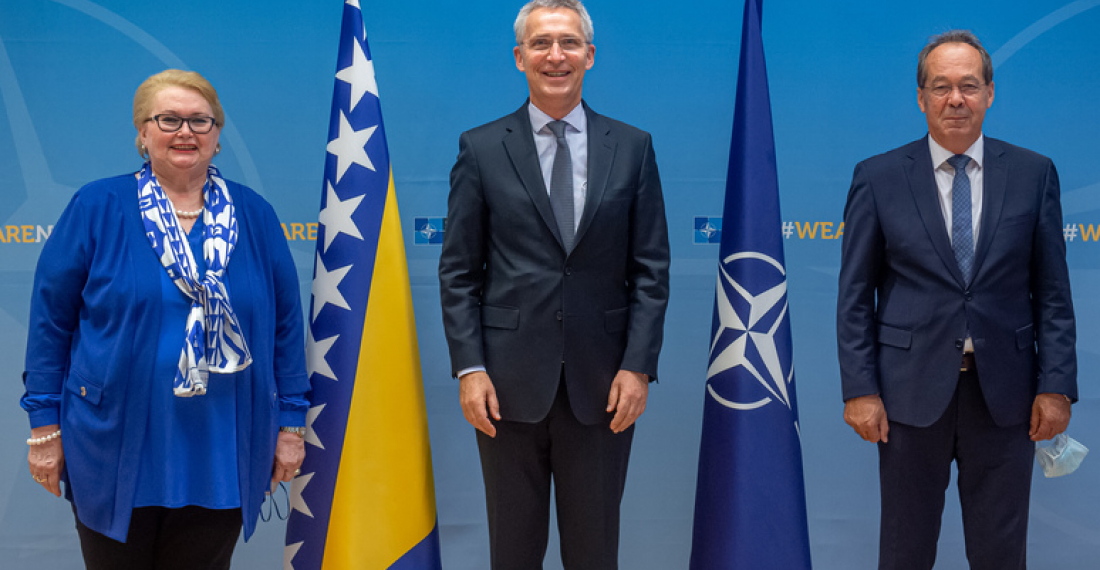The NATO Secretary-General, Jens Stoltenberg, welcomed the Deputy Chairperson of the Council of Ministers and Minister of Foreign Affairs of Bosnia and Herzegovina, Bisera Turković, and the Minister of Defence of Bosnia and Herzegovina, Sifet Podžić, to NATO headquarters on Wednesday (14 July), to discuss how to further enhance NATO’s relationship with Bosnia and Herzegovina and the wider region.
Following their bilateral meeting, the Ministers participated in a meeting of the North Atlantic Council chaired by the Secretary-General, where the Reform Programme and future political dialogue were discussed with Allies.
According to Stoltenberg, the NATO member states are interested in learning about the Reform Programme’s implementation, and he is looking forward to a constructive and informative debate. He also said that NATO continues to stand ready to support Bosnia and Herzegovina’s reform efforts.
In their meeting, the Secretary-General thanked Bosnia and Herzegovina for their contribution to the Resolute Support Mission in Afghanistan. He also said that he was pleased with the improvement in the region’s COVID-19 situation, and was glad that NATO was able to support Bosnia and Herzegovina in combatting the pandemic through the Euro-Atlantic Disaster Coordination Centre.







